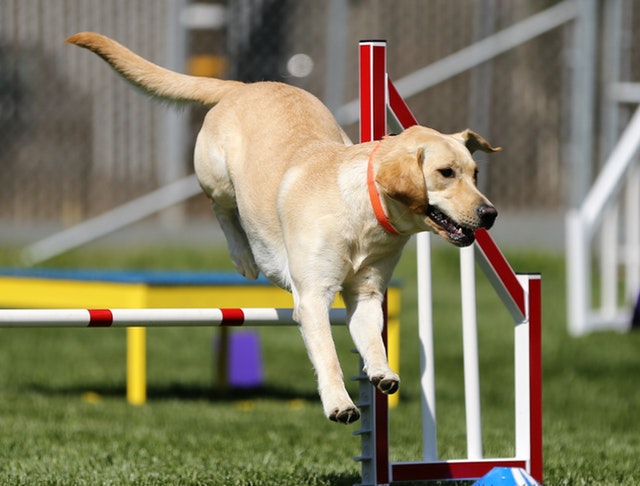Why Study this Dog Psychology and Training Course?
If you love dogs or if you’re interested in communicating, understanding, and even training them, this course may just be the one you are looking for! This online dog psychology course covers all that and much more! This course will also teach you how a canine behaves naturally, how their behavior develops, the disorders they may have, the training done for them to understand commands, the way to control their movement, and the way to train them to become a working dog.
Dog Trainer Course Online
This online dog training course will teach you how to understand what your dog is saying. Using psychology you can learn to understand what is normal behaviour in a dog, how to deal with common problems and how to train dogs so that their relationships with people are happy and safe.
- Online course
- Flexible study options
- Interest free payment plans from $25/week
- Experience and friendly tutor support.
What You Will Study:
- Describe how canine animals think and discuss the relevance of understanding canine psychology to people.
- Explain how canine animals communicate and formulate an understanding of possible ways that a human may communicate with a dog.
- Understand behaviours that are natural and predictable in canines and learn to recognise and understand signals that dogs give.
- Explain how dogs develop behavioural characteristics throughout stages of their life.
- Describe commonly occurring behavioural problems in dogs.
- Develop a program for training a new pet dog when it is brought into a household.
- Explain how to train a dog to perform predetermined actions upon command.
- Describe how the movement of dogs can be controlled, both through training and other methods.
- Describe how dogs can be trained to perform tasks required as a working dog, including a sheep dog, tracking dog, blind dog or substance detection dog.
Dog Psychology Course Outline:
There are 9 lessons in this course:
- Nature and Scope of Canine Psychology
- A brief history of the canine evolution
- Self-domestication
- Canine industries
- Canine Senses
- Understanding canine communication
- Sight
- Body Language
- Smell
- Sound
- Elimination Postures
- Understanding Natural Canine Behaviour
- Social Structure
- Social Behaviour
- Aggression
- Clinical Problems
- Biological Rhythms
- Sleep
- Sexual Behaviour
- Maternal Behaviour
- Parturition
- Suckling and Weaning
- Eating and Drinking
- Canine Behavioural Development
- Nature or Nurture
- Sensitive Periods
- Neurological Development
- Canine Temperament Testing
- How Breeds Differ
- Canine Behavioural Disorders
- Attention Seeking Behavior
- Excessive barking
- Chewing
- Running away
- Chasing moving objects
- Begging
- Digging
- Separation anxiety
- Aggression
- Phobias
- Excessive compulsive disorders
- Cognitive Dysfunction
- Calming a dog
- Basic Dog Training
- Forming habits
- Conditioning
- Classical Conditioning
- Operant Conditioning
- Socialisation
- House training
- The use of visual signals
- The use of voice commands
- The use of training aids
- Dog Obedience Training
- Practical Training Techniques
- Recall
- Sit
- Stand
- Drop
- Leave
- Down
- Stay
- Heel
- Seek
- Retrieve
- Bark on Signal
- Controlling a Dogs Movement
- Territorial nature of dogs
- Fencing
- Dog doors
- Kennels
- Exercise requirements
- Socialization requirements
- Walking on a lead/leash
- Electronic barriers
- Microchips
- Pet Registration and Licensing
- Controlling Killing Wildlife
- Training Working Dogs
- Training for scent discrimination or substance detection
- Training for retrieving
- Guarding
- Hearing dogs
- Herding
- Tracking
- Controlling attacks on animals and people
Enrol Now
- Experienced Tutor support
- Certificate sent to you
- Online study (Printed notes available)
- Self paced - no set timetable
- 12 months to complete course
From: $25.00 / week for 26 weeks
Get a Free Info Pack!









